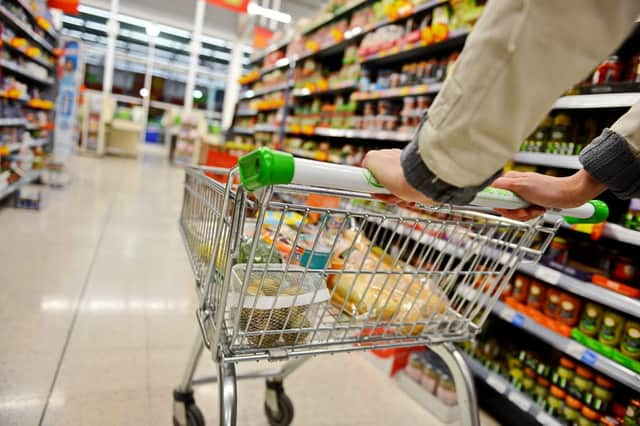Your weekly food shop could be more expensive from 1 January - here’s why


As the UK edges ever closer to an official exit from the EU, there are concerns that food prices could spike come January.
After 31 December 2020, the UK will enter a new trading relationship with the EU, and will stop following EU trading rules as a result.
Advertisement
Hide AdAdvertisement
Hide AdAs talks are still ongoing, it is not yet known exactly how, or to what extent, food prices will be affected, but if no trade deal is agreed, it’s likely there will be some changes.
Why will food prices be affected?
A huge amount of the food eaten in the UK is imported from EU countries - just over a quarter of everything consumed.
For countries outside of the EU, import taxes (known as tariffs) apply when food from EU countries is imported. These tariffs are decided by the World Trade Organisation (WTO).
If the UK does manage to agree a trade deal with the EU, food imports will continue to enter the country without tariffs being paid. If a trade deal cannot be agreed, however, trade between the UK and the EU will revert to WTO rules, which include high tariffs for food imported and exported between the two places.
Advertisement
Hide AdAdvertisement
Hide AdAside from tariffs, retailers will soon have to fill in extra paperwork for food imports, while producers of food may have to adjust to different regulations.
These adjustments will cost money, meaning that, even if a deal is reached, food prices could still rise.
Which foods will be most affected?
It’s expected that meat and dairy products would face very high tariffs when brought in from the EU, though other products such as fresh fruit and vegetables may also be affected.
Though other non-consumable products also face tariffs - such as cars - food and drink is the area where the highest tariffs apply.
Advertisement
Hide AdAdvertisement
Hide AdThe London School of Economics (LSE) estimated that, in an extreme case, speciality cheeses like roquefort or halloumi could shoot up in price by 55 per cent.
Government minister, George Eustice, said that there would be a less than two per cent rise in prices, though admitted that some items like beef would see higher rises.
How high could food prices go?
Adding up the potential costs, the LSE estimated that unbranded, imported food products from the EU would cost 4.7 per cent more on average after Brexit. Without a deal, this would rise to 12.5 per cent.
It is possible that the price of some foods could go down should the UK agree new trade deals with other countries, though trade deals can take a long time to negotiate.
Advertisement
Hide AdAdvertisement
Hide AdWTO rules allow the UK to cut tariffs without trade deals, but only if it makes the same offer to every country that doesn’t have a trade deal.
This means that if the UK cut tariffs to zero on EU imports, it would have to cut tariffs to zero for every other country across the board. While this would make food cheaper, it would hit UK farmers hard, as they would struggle to compete with cheap imports.